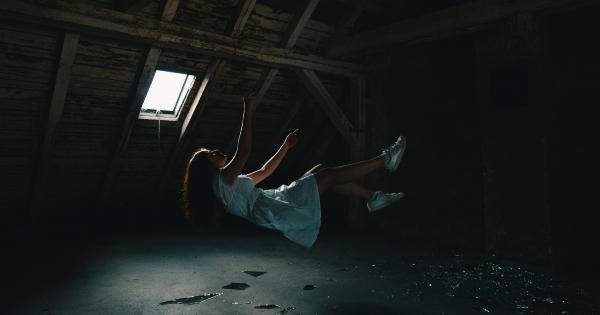Sleep paralysis is a phenomenon where a person is temporarily unable to move, speak, or react while either falling asleep or waking up.
It can be an incredibly frightening experience, often accompanied by a feeling of suffocation, pressure on the chest, and visual or auditory hallucinations. While sleep paralysis itself is not harmful, the intense fear it can cause can lead to sleepless nights and even anxiety disorders.
What Causes Sleep Paralysis?
Sleep paralysis occurs when the body and brain are not synced up during the sleep cycle. During normal sleep, the human brain paralyzes the muscles in the body to prevent people from acting out their dreams.
However, during sleep paralysis, the brain wakes up before the body, leaving the muscles frozen in place.
Sleep paralysis can be triggered by a number of factors, including stress, sleep deprivation, narcolepsy, and irregular sleep patterns. Some people are also genetically predisposed to sleep paralysis.
The Symptoms of Sleep Paralysis
The most common symptom of sleep paralysis is the inability to move or speak. Other symptoms include:.
- Feeling a heavy weight on the chest
- Feeling like someone is in the room with you
- Hearing strange noises
- Seeing vivid, often terrifying, hallucinations
- Feeling like you’re dying or suffocating
The Science of Sleep Paralysis Hallucinations
The hallucinations that accompany sleep paralysis are often terrifying. People report seeing demons, ghosts, and other terrifying images during their episodes. So, what causes these hallucinations?.
Researchers believe that sleep paralysis hallucinations are the result of a disruption in the normal sleep cycle. During REM sleep, the part of the brain that controls logical thinking is inactive, which allows for vivid dream imagery.
However, during sleep paralysis, the brain is partially awake and partially asleep, leading to hallucinations that feel frighteningly real.
How to Deal with Sleep Paralysis
While there is no cure for sleep paralysis, there are a few things you can do to manage your symptoms:.
- Establish a regular sleep schedule
- Avoid stimulants like caffeine and nicotine before bed
- Avoid sleeping on your back
- Try relaxation techniques, like deep breathing or meditation, before bed
- Consider seeking therapy to address any underlying anxiety or stress
When to See a Doctor
In most cases, sleep paralysis is not a cause for alarm. However, if you experience sleep paralysis regularly or if it starts to interfere with your sleep, it may be worth seeing a doctor.
Your doctor may be able to identify an underlying cause, such as narcolepsy, and suggest treatment options.
The Bottom Line
Sleep paralysis can be a terrifying experience, but knowing what to expect and how to manage your symptoms can help alleviate some of the fear.
If you experience sleep paralysis regularly, consider talking to your doctor or a mental health professional to develop a plan for managing your symptoms.




























